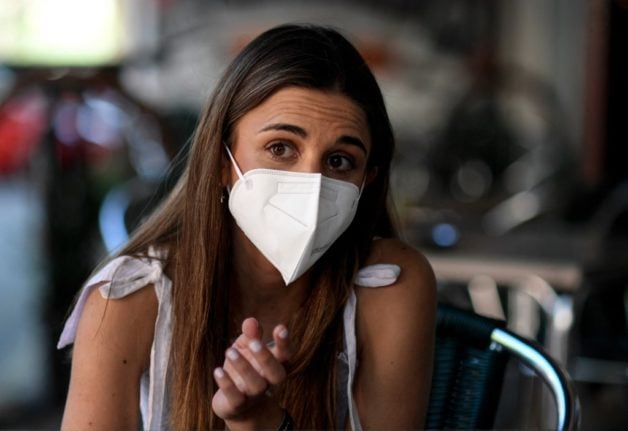After April 1st, SwissCovid will disappear from the Apple and Google app stores, according to the Federal Office of Public Health (FOPH).
The main reason for the change is the upcoming further relaxation of all Covid measures from April 1st, including the obligation to isolate for anyone who tests positive for Covid.
“With the lifting of the obligation to isolate in April, the prerequisites for an effective continuation of the SwissCovid app are no longer there, since contact tracing will be greatly reduced”, said FOPH spokesperson Katrin Holenstein.
Depending on how the epidemiological situation develops in the winter of 2022/2023, the operation of the SwissCovid app could be resumed quickly.
“Depending on how the epidemiological situation develops in winter 2022/2023, the operation of the SwissCovid app should be able to be resumed quickly,” Holenstein said.
“Therefore, the necessary IT infrastructures will continue to be maintained in the background.”
The FOPH said no set criteria have been developed according to which the app may be reactivated, although Holenstein confirmed a “deterioration in the epidemiological situation, which would necessitate new measures” would be necessary.
The app was launched in June 2020 to track infection chains.
While there were some hiccups during the early days of the app, recent studies have confirmed its effectiveness.
Swiss news outlet Watson notes that the app “saved lives” and cost the Swiss government a relatively small figure of CHF10million to develop.
Will Switzerland still lift all remaining Covid restrictions despite rising infections?
On February 16th, the government announced almost all measures in place at that time would be scrapped the following day.
The requirement to show the Covid certificate to access indoor venues fell, and masks were no longer required in most public places, except for public transport and health establishments.
The remaining rules — the requirement to isolate in the event of a positive test and to wear masks on public transport and in healthcare facilities — are set to be dropped from April 1st “if the epidemiological situation continues to evolve as expected”, the Federal Council said.
The key phrase, “if the epidemiological situation continues to evolve as expected”, is not very precise; it is unclear whether it means that infection rates should decline significantly, or whether they should just not keep increasing.
One principal criterion set by the government is that the healthcare system must not be overwhelmed by coronavirus patients, rather than simply infection rates.
The Federal Council has not yet indicated what the decision will be, even though three members — President Ignazio Cassis, Health Minister Alain Berset, and Minister of Economic Affairs Guy Parmelin — have all recently tested positive to coronavirus.
It is reasonable to assume, however, that if the situation in hospitals doesn’t worsen dramatically in coming days, the remaining restrictions could be lifted, even if cases continue to climb.
More information about the possible development is available at the following link.
READ MORE: Will Switzerland lift Covid restrictions amid rising infections?




 Please whitelist us to continue reading.
Please whitelist us to continue reading.
Member comments